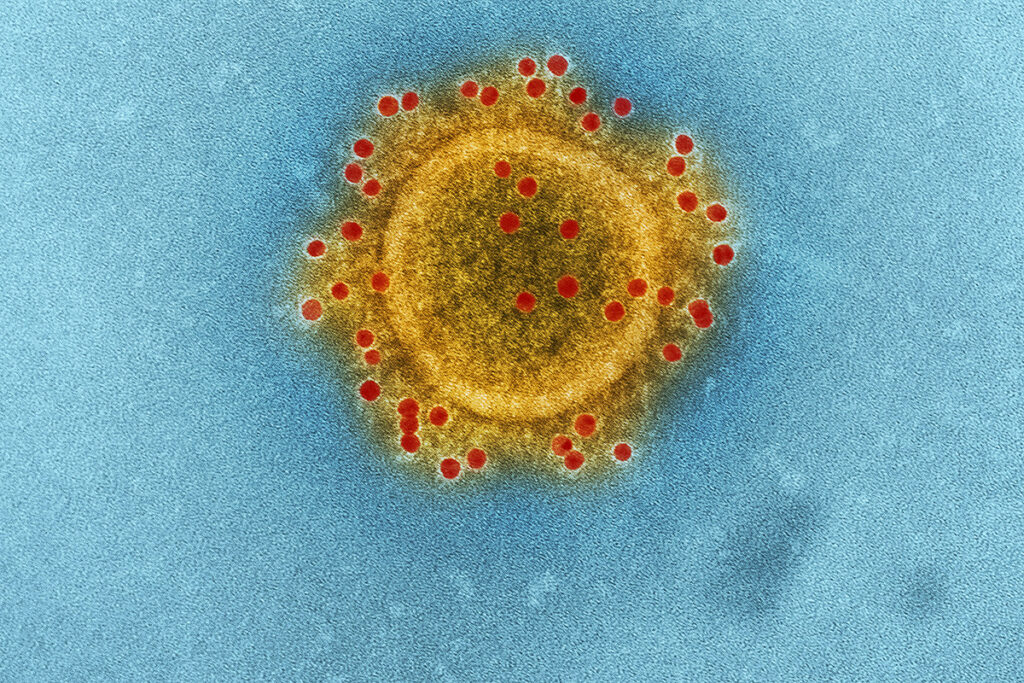Contents
- The Danger of Autoantibodies to Interferons and Their Emergence
- Autoantibodies Targeting Immune Cells and Tissues Complicate the Course of COVID-19
- Neutralizing Autoantibodies to Type I Interferons are Present in 4% of Uninfected Individuals Over 70 and Account for 20% of COVID-19 Deaths
- Neutralizing Autoantibodies to IFNs are More Commonly Detected in Severe COVID-19 Patients, Especially in Males
- Conclusion
- References
Why are autoantibodies to interferons dangerous and why do they appear?
In some COVID-19 patients, neutralizing autoantibodies to type I interferons (IFNs) have been detected. Type I IFNs are crucial for antiviral protection. Upon coronavirus entry into the body, pattern recognition receptors are activated, initiating the innate immune response, which produces type I interferons. Type I IFNs suppress the virus.
Autoantibodies to IFNs reduce the effectiveness of the immune response to the coronavirus and impair the body’s ability to suppress virus replication. Hence, autoantibodies to IFNs are associated with severe COVID-19. Autoantibodies to IFNs are found in approximately 10% of patients with severe COVID-19 pneumonia.
Usually, autoantibodies are detected in chronic infections and autoimmune diseases. These autoantibodies prompt the body to attack its tissues. Factors such as genetics, hormonal changes, environmental conditions, and certain infections can trigger the formation of autoantibodies.
The coronavirus is associated with an increase in cases of autoimmune reactions. COVID-19 patients experience a rise in the quantity and variety of autoantibodies: antibodies to interferons, antinuclear antibodies, and neutrophils have been detected. The elevation in autoantibody levels is associated with a more active inflammatory and immune response, which affects the normal function of the immune system, alters the balance of immune cells, and, therefore, may weaken the body’s defense against viruses.
Autoantibodies Targeting Immune Cells and Tissues Complicate COVID-19 Progression
Researchers from Yale University have discovered that some COVID-19 patients have autoantibodies that attack the body’s tissues and immune cells. These autoantibodies can worsen virus control and exacerbate the severity of the disease.
Scientists analyzed the presence of autoantibodies against 2770 proteins in nearly 200 coronavirus-infected patients and a control group of 30 healthy healthcare workers. COVID-19 patients showed significantly elevated levels of autoantibodies, particularly against immune-modulating proteins, which correlated with disease severity.
Severely ill patients exhibited autoantibodies against various tissues, including cells of the central nervous system, heart, and liver. These autoantibodies were associated with high inflammation markers and poorer disease prognosis.
Autoantibodies against type I interferons were present in 5.2% of hospitalized COVID-19 patients. Interferon autoantibodies impaired the body’s ability to reduce viral load.
In a mouse experiment, antibodies against type I interferon receptors increased susceptibility to coronavirus. This confirms that antibodies neutralizing type I interferon suppress the innate antiviral response, worsen the ability to control virus replication, and intensify COVID-19 severity.
Autoantibodies may affect blood leukocyte composition by reducing the number of B lymphocytes, which produce antiviral antibodies. Patients with autoantibodies against B lymphocytes had significantly lower levels of IgM RBD antibodies to the coronavirus.
Details of the research are in the article “Аutoantibodies complicate COVID-19 disease,” published in the journal Nature.
Neutralizing Autoantibodies to Type I Interferons Present in 4% of Uninfected Individuals Over 70 Years Old and Account for 20% of COVID-19 Deaths
Autoantibodies to interferons are found in approximately 10% of patients with critical pneumonia and even more frequently in elderly individuals over 80 years old. During viral infections, neutralizing interferon autoantibodies can contribute to the transition from mild to severe illness, leading to hospitalization and increased mortality.
In a sample of over 1200 individuals aged 20 to 69, interferon autoantibodies were detected in 0.3% even before the COVID-19 pandemic. These autoantibodies may have arisen due to genetic reasons or autoimmune diseases and were more likely to cause critical COVID-19 than to be caused by it.
The prevalence of autoantibodies increases with age, making elderly individuals particularly vulnerable to severe forms of COVID-19. Therefore, elderly patients and those with autoimmune or genetic diseases should undergo screening for interferon autoantibodies. Such screening will enable timely measures to prevent the development of severe COVID-19. Tests for autoantibodies should be conducted for at least three interferons: IFN-α2, IFN-ω, and IFN-β. The interferon-neutralizing activity of these autoantibodies is better determined than their simple detection, which can result in false negatives.
Therapeutic measures for COVID-19 patients with interferon autoantibodies include:
- Hospitalization for immediate treatment.
- Early treatment with monoclonal antibodies can be administered to patients without symptoms of severe pneumonia.
- IFN-β can be administered in the absence of both pneumonia and interferon autoantibodies.
- Plasma exchange therapy for patients with pneumonia.
Study details are in the article “Interferon Autoantibodies Increase the Risk of Critical COVID-19 in Elders,” published in the journal Science Immunology.
Neutralizing Autoantibodies to IFN Are More Often Found in Seriously Ill Patients With COVID-19 and in Men
Researchers from the Chinese Center for Disease Control and Prevention conducted a systematic review and meta-analysis of eight studies on autoantibodies to IFNs in COVID-19. The total number of participants was over 7700 patients.
Meta-Analysis Results
- Autoantibodies to type I interferons were detected in 5% of COVID-19 patients. Among them, 89% had antibodies to IFN-α and 77% to IFN-ω.
- Among patients with severe symptoms, autoantibodies to IFNs were present in 10%. In patients with mild COVID-19, autoantibodies were found in only 1% of cases. The level of autoantibodies to type I IFNs in patients with severe COVID-19 was higher than in patients with less pronounced symptoms.
- Autoantibodies to IFNs were more frequently detected in males: 5% compared to 2% in females.
The study was published in the International Journal of Infectious Diseases
Conclusion
COVID-19 patients harbor autoantibodies that target tissues and immune cells. The higher the levels of autoantibodies in the bloodstream, the more severe the COVID-19 becomes. These autoantibodies have the potential to alter the course of COVID-19 by disrupting the immune response to the coronavirus and causing direct tissue damage.
In patients with autoantibodies against B lymphocytes, levels of IgM RBD antibodies to the coronavirus are significantly reduced.
Neutralizing autoantibodies to IFNs is commonly found in COVID-19 patients with severe symptoms and males. If autoantibodies to IFNs are a cause rather than a consequence of severe COVID-19, it is vital to monitor the antibody levels in these patients early. The administration of type I interferon may prevent the development of severe illness in patients with coronavirus.
Useful article, necessary information? Share it!
Someone will also find it useful and necessary:
References
- Autoantibodies against type I interferons in COVID-19 infection: A systematic review and meta-analysis
- Autoantibodies neutralizing type I IFNs are present in ~4% of uninfected individuals over 70 years old and account for ~20% of COVID-19 deaths
- Diverse functional autoantibodies in patients with COVID-19



